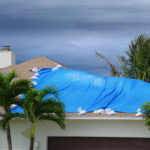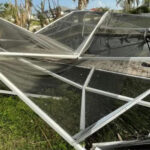Brick Paver Maintenance
When it comes to enhancing the curb appeal of your home, brick pavers are a fantastic choice. Not only are they a beautiful option that adds an element of charm to your home, they are also incredibly durable. Unlike concrete, they are not as susceptible to erosion and cracking issues. In fact, brick pavers can last for generations when properly cared for. So how should you be caring for your brick pavers? Keep reading to find out!
General Paver Maintenance – What to know:
- Clean them regularly: When it comes to your brick pavers, we recommend adding cleaning them to your to do list each spring. For best results, use a coarse brush and a cleaner specifically for brick pavers. You’ll want to make sure to test the cleaner first on a small patch of the pavers to ensure it doesn’t cause any discoloration or damage, as well as read all instructions carefully.
Pro tip: when cleaning pavers that have had an oil spill make sure to soak the oil rather than rub it. Rubbing will push the stain deeper! - Stay on top of weeds: We know weeding isn’t usually how you want to spend your Saturday afternoon, but it’s worth it! It’s important to stay on top of weeds that can grow between your pavers. If you ignore them, some weeds are actually able to cause the pavers to shift and move apart. Just like you should be cleaning your pavers regularly, it’s recommended to spray weed killer between pavers regularly as well to help minimize the number of weeds that grow.
- Be careful with the power washer: Power washing is a fast and effective way to clean surfaces but it can actually cause unwanted damage. If the spray is too powerful it can cause the aggregate under the brick pavers to become exposed. We see this kind of damage often.
Protecting and Extending The Life of Your Pavers – What to know:
- Limit de-icer: Nobody wants a slippery and potentially dangerous walkway, but when it comes to your brick pavers, make sure to use de-icer sparingly. When used moderately and carefully, it shouldn’t damage pavers but when done in excess it can result in surface wear.
- Don’t over seal: sealing your pavers over and over may seem like you’re protecting them, when in fact, it can have the opposite fact. Do it yourself sealing can lead to a film developing on the surface of your brick pavers and cause discoloration.
- Be mindful of the joint: The joints in between the pavers are the most vulnerable part of them. Make sure to refill the joints with jointing sand when needed to prevent any deterioration below the pavers and shifting.
Call 3G For Brick Paver Sealing and Maintenance
We hope these tips help you keep your pavers looking their best. However, to have your pavers professionally sealed give 3G Home Exteriors a call. No matter your paver project, our experienced team can get the job done.






